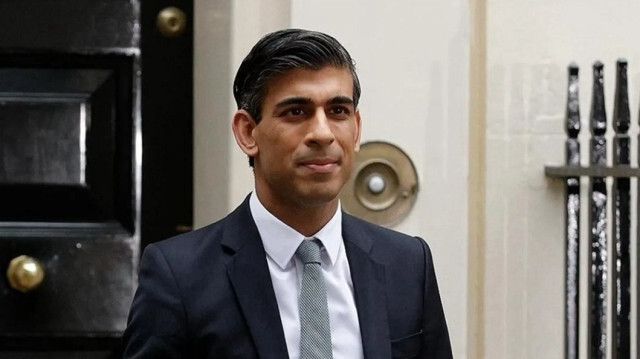
- Sunak will pitch controversial Rwanda deportation plan as a success in fight against illegal immigration
- Labour leader Keir Starmer is confident of capitalizing on plummeting Tory ratings and promises change in the UK
British voters will head to the polls once again in six weeks' time to decide a new government as Prime Minister Rishi Sunak finally called for general election on July 4.
In a rain-soaked news conference outside 10 Downing Street, Sunak said his request for an election has received approval from King Charles III.
He is now expected to remain in the driving seat until the election, while the parliament will be dissolved in a few days after wrapping up any business regarding the last bits of legislation.
The election was expected as Sunak had promised for it to take place in the second half of the year, but he may well face a grim result, just like the May 2 local elections in some parts of England and Wales.
The polls were Sunak's first serious electoral challenge since taking the top office from Liz Truss, who was ousted as premier in a mere 49 days following a series of radical economic decisions that rattled British markets.
The elections ended in disappointment for the prime minister and the ruling Conservatives, an indicator of how Sunak has failed to revive the party's flagging fortunes since October 2022.
The result was largely anticipated as polling data was in favor of the Labour Party and the failure of the country's first British Asian Hindu prime minister was almost certain.
It was confirmed after the results showed that the once-mighty party lost 10 councils and 397 councilor seats.
After a few days of silence, Sunak acknowledged the disappointment but vowed to fight on, saying that “the result of the next general election isn't a foregone conclusion.”
He tried to convince the British public that his team has “a plan and are prepared to take bold actions.”
“I've stuck with that plan and always been honest with you about what is needed, even when that's been difficult,” he said.
“I will prove to you a Conservative government led by me will not put our economic stability at risk.”
Turning his guns on Labour, he said: “I don't know what they offer, and in truth, I don't think you do either.”
- Rumors and calculations
Sunak's choice of election date was a surprise to some but political circles believe the decision to not go for a later one is rooted in the belief that he can benefit from a few economic successes, including a recession exit and lower inflation rate.
He may also be calculating to avoid other potential issues, including a possible uprising within the Conservatives after the local elections battering, which so far has remained confined to rumors within the corridors of power.
However, the same hearsay also suggests the 1922 Committee might soon have enough letters to trigger a vote of no confidence against Sunak.
Sunak is also certain to pitch the passing of a new bill to remove legal hindrances to the controversial Rwanda deportation flights – which he announced on Thursday will start after the elections – as a success in the fight against illegal immigration, a long-stalled policy from the Tory manifesto for the past few elections.
- Labour gunning for change as Tories lag behind
Recent polls show Labour with a 10-point advantage over the Conservatives, reflecting public dissatisfaction with the current government.
Sunak, despite his highly optimistic rhetoric and efforts to address pressing issues, faces an uphill battle to regain voter confidence.
According to The Guardian, Labour is currently at 44.6%, with the Conservatives trailing far behind at 22.9%, followed by Reform at 11.3%, Liberal Democrats at 9.8% and the Green Party at 6.5%.
The main reasons for the sharp drop for Tories are the high COVID-19 death rate under former Prime Minister Boris Johnson, the cost of living crisis, small boat migrant arrivals from France and delayed remedies such as the Rwanda plan, domestic troubles caused by the prolonged war in Ukraine, as well as the polarization among people due to the government's one-sided policy on Israel's ongoing war on Gaza.
Labour leader Keir Starmer, on the other hand, has capitalized on the party's momentum, doubling down on promises of transformative policies and change.
Shortly after Sunak's announcement, he argued that the country would be stalled and “nothing will change” if the Conservative Party wins a new five-year term.
“It is time for change,” said Starmer, who is hoping to steer the party to the ultimate victory and become the new prime minister.
With election day fast approaching, Britain's political landscape is poised for a shift in power, unless Sunak and the Conservatives somehow turn the tide.














